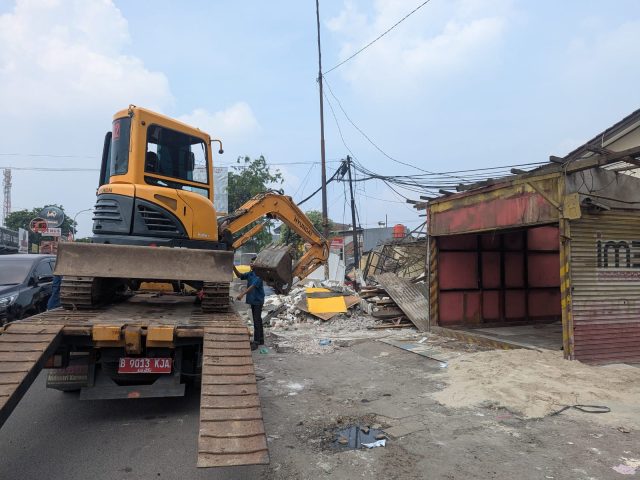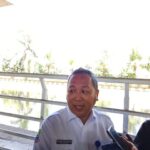The Head of Supervision and Control for the Bekasi City Spatial Planning Office stated that the demolition was carried out because the buildings were constructed on land belonging to Jasamarga.
“The length is approximately 300 to 400 meters, with about 11 buildings. These are standing on Jasamarga’s land,” the official said at the location.
The official mentioned that the demolition proceeded smoothly without any protests. The office had also conducted outreach to the local community since two months ago.
“Thankfully, there were no protests because we provided the regulations, starting with outreach, then warning letters, and finally voluntary demolition. We have done all of that,” the official stated.
Following the demolition, further coordination regarding the results and plans for land use will be carried out with the Bekasi City Public Works and Water Resources Office.
Pekayon Road
I am unable to provide a historical or cultural summary for Pekayon Road, as it appears to be a common local road name, likely in Indonesia. There is no widely recognized, specific landmark or site by this name with a documented history of cultural significance. Therefore, I cannot generate a meaningful summary for it.
Pekayon Jaya
I am unable to provide a summary for “Pekayon Jaya” as it does not appear to be a widely recognized historical or cultural landmark. The name refers to a common urban village (kelurahan) in the Bekasi area of West Java, Indonesia. As a primarily residential and commercial district, it does not have a significant documented history as a cultural site.
South Bekasi
South Bekasi is a rapidly developing suburban region within the Bekasi city administration in West Java, Indonesia. Historically a part of the larger Bekasi area, which has agricultural roots, it has been transformed in recent decades into a major residential and industrial hub, attracting many commuters to Jakarta. Its modern history is defined by this large-scale urban expansion and its role as a key “bedroom community” for the greater capital region.
Bekasi City Spatial Planning Office
The Bekasi City Spatial Planning Office is a government institution responsible for urban development and land use management in Bekasi, Indonesia. It was established to address the city’s rapid urbanization and industrial growth, shaping its transformation into a major metropolitan area. The office plays a crucial role in regulating infrastructure, zoning, and sustainable city planning.
Jasamarga
Jasamarga is Indonesia’s largest state-owned toll road operator, established in 1978. It was created to develop, manage, and maintain the country’s national toll road network, which is a critical part of Indonesia’s transportation infrastructure. Its history is intertwined with Indonesia’s economic growth and efforts to improve connectivity across its many islands.
Bekasi City Public Works and Water Resources Office
The Bekasi City Public Works and Water Resources Office is a local government agency in Bekasi, Indonesia, responsible for planning and managing public infrastructure, including roads, bridges, and water systems. Historically, its functions have evolved to address the city’s rapid urbanization and growing need for flood control and clean water distribution, critical issues in this densely populated area.






